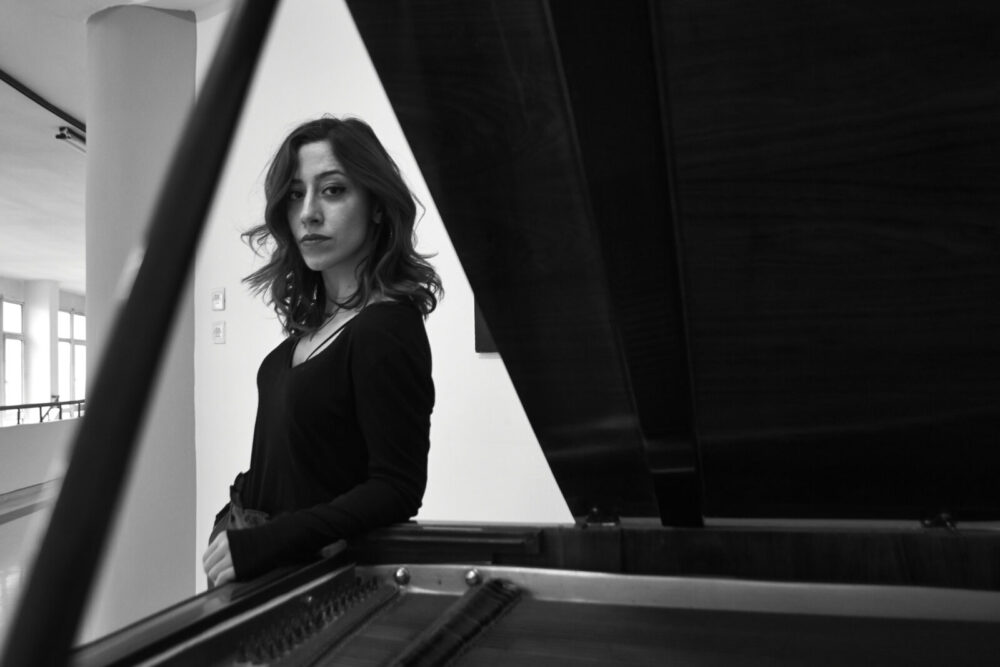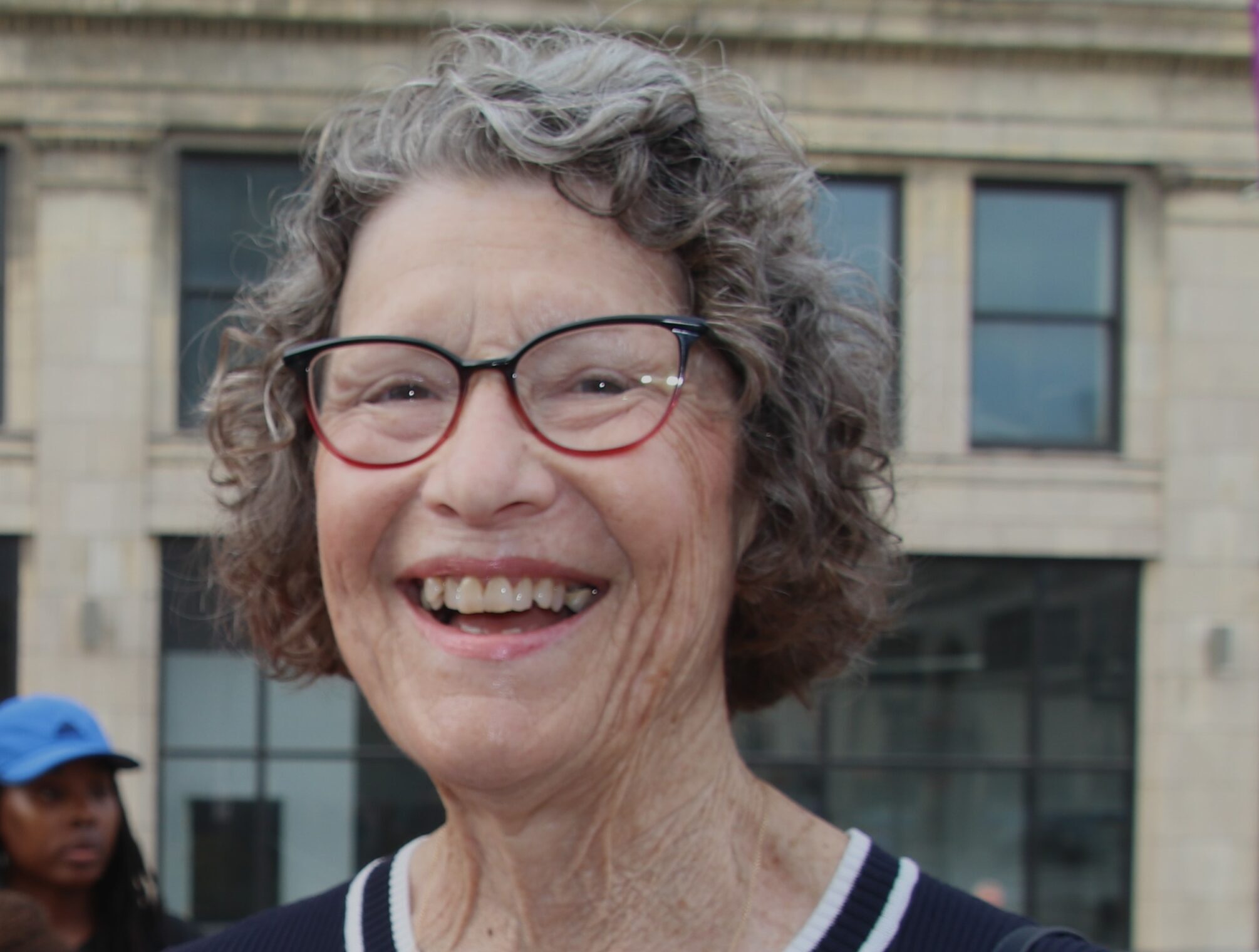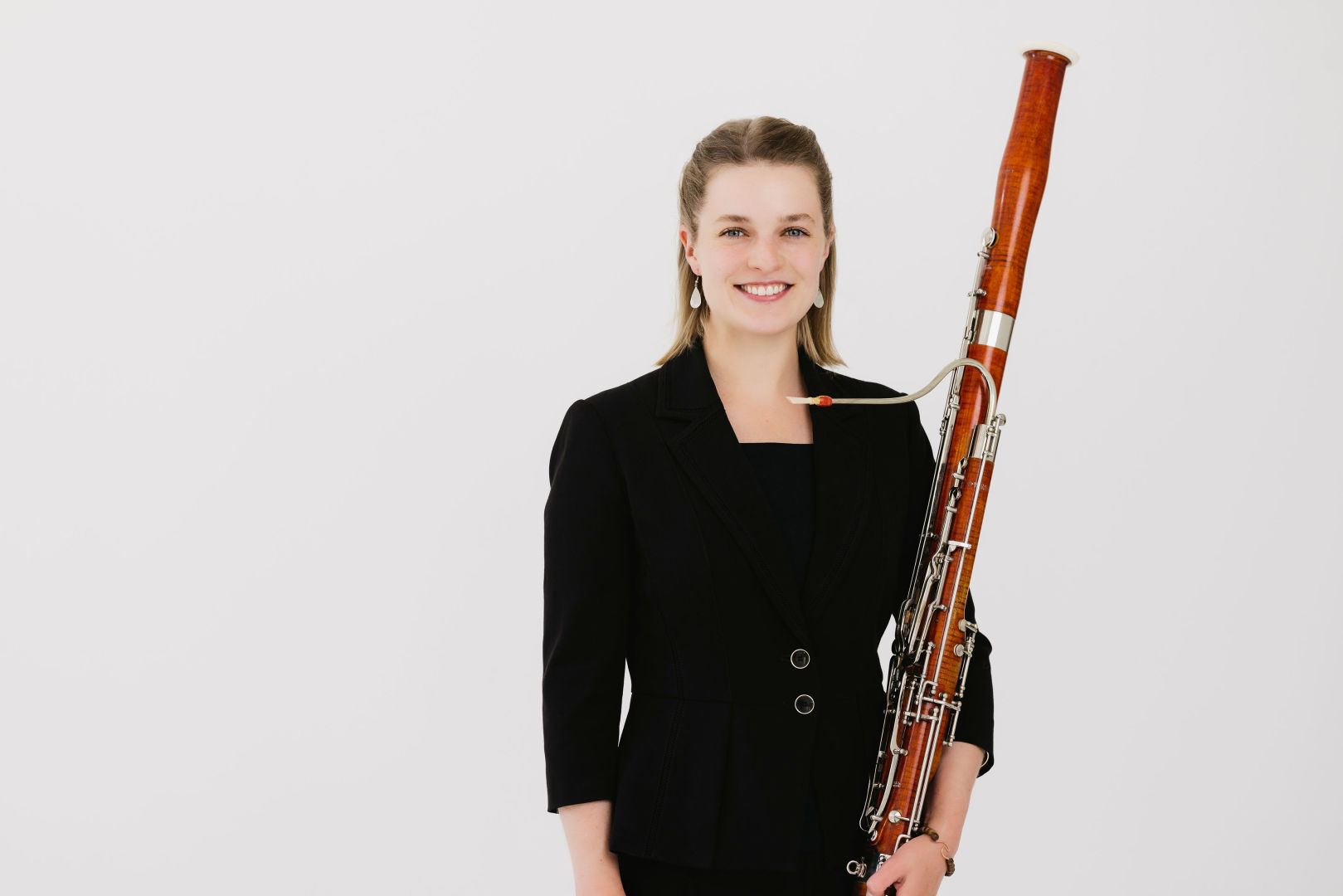Five Questions with Composer Seda Balci
By Eric Dundon
When St. Louis Symphony Orchestra musicians present chamber music as part of the SLSO’s Live at The Sheldon series, they’re given artistic control of the program and perform a wide range of repertoire not generally heard on classical programs. This also includes chamber music by rising composers at the University of Missouri, part of the orchestra’s long-running collaboration with the Mizzou New Music Initiative (MNMI)—a program of the university that supports emerging composers.
On most Live at The Sheldon programs this season, SLSO musicians will give the world premiere performances of MNMI composers’ works, including Seda Balci’s Adieu to the Moon on January 30.
A native of Turkey, Balci is a student at the University of Missouri and is also a pianist. Here, she talks about the world premiere of Adieu to the Moon.

This interview was edited for length and clarity.
St. Louis Symphony Orchestra: What is your musical history? How has it influenced your voice so far as a composer?
Seda Balci: My father had a band in the Black Sea region of Turkey during the 1970s, where he played pop music. He was a multi-instrumentalist who approached music as a hobby, sometimes performing as a vocalist, guitarist, or drummer. My mother, on the other hand, was passionate about folk music and often sang along to the tunes she played at home. My father’s love for jazz, classical music, and ‘70s pop, combined with my mother’s fondness for folk music, became the foundational elements of my musical language.
At the age of 11, I began studying piano at a conservatory. By then, I had already started composing, to the point where I spent more time creating music than practicing the piano.
My musical voice has been shaped by my cultural roots, the rigorous European classical training I received, and my endless curiosity and fascination with the universe. These elements are the primary drivers behind the subjects I explore in my music.
Tell us about your composition process.
I would describe myself as a thematic composer. My music is inspired by three primary sources: space-time, nature, and tradition. I begin by focusing on the subject I want to convey in my music and the sensory experiences it aims to evoke—these are almost always rooted in one of these three themes. Once I have chosen the subject, I identify a theme. This could be something as simple as a rhythmic motif or an interval.
I then develop these ideas in a way that allows the listener to follow them. My main goal is to guide the listener’s perception by creating a musical journey shaped by the evolution of the theme.
Tell us about your piece, Adieu to the Moon, which will receive its world premiere at the January 30 Live at The Sheldon chamber music concert.
Adieu to the Moon is a three-movement piece for clarinet quartet. The amazing SLSO musicians who were set to perform the piece offered a suggestion that sparked my imagination. Since January 29, 2025, marks the start of the Lunar New Year, an important holiday in Asian culture, they thought it would be interesting to explore melodies from Asian folk traditions. This idea immediately resonated with me, as I’ve always been fascinated by world cultures and their music.
I began by delving into Asian traditions and exploring traditional folk songs. During my research, I came across the famous Chinese folk song “Jasmine Flower,” which dates back to the 18th century. I decided to use it as the central theme of my piece. In Chinese culture, jasmine symbolizes purity, beauty, and love—qualities that inspired the emotional core of the work.
What should audiences listen for in your piece? What do you hope they take away from listening?
Audiences will hear Asian-inspired melodies, which set the stage for their musical journey leading to Jasmine Flower. Alongside these melodies, the harmonics played by the violins symbolize moonlight—sometimes flickering, other times obscured by clouds, but always managing to reach Earth in some form. However, there’s a scientific truth behind this: the Moon is drifting approximately 4 centimeters away from Earth every year. While this shift is insignificant on a human timescale, it reminds us that the Moon is slowly saying goodbye to us, creating a subtle sense of loss.
Ultimately, I hope the audience finds this combination of elements—recognizable melodies, innovative techniques, and emotional contrasts—an engaging and meaningful listening experience. It’s a piece that invites reflection but also celebrates the beauty of transformation and connection.
This performance is a result of the collaboration between the SLSO and the Mizzou New Music Initiative, connecting the orchestra to rising composers’ voices. What does the experience of having professional musicians perform your music mean to you? What do you anticipate learning or taking away from the experience?
It’s almost impossible to put into words what this opportunity means to me. Opportunities like this are invaluable, especially for composers at the beginning of their careers, as they play a critical role in shaping one’s musical voice.
Having my music performed by top-level musicians, especially members of the SLSO, is an incredible honor. I look forward to learning from these musicians’ interpretations and using this knowledge to refine and evolve my compositional approach in future projects.
Eric Dundon is the SLSO’s Public Relations Director.


